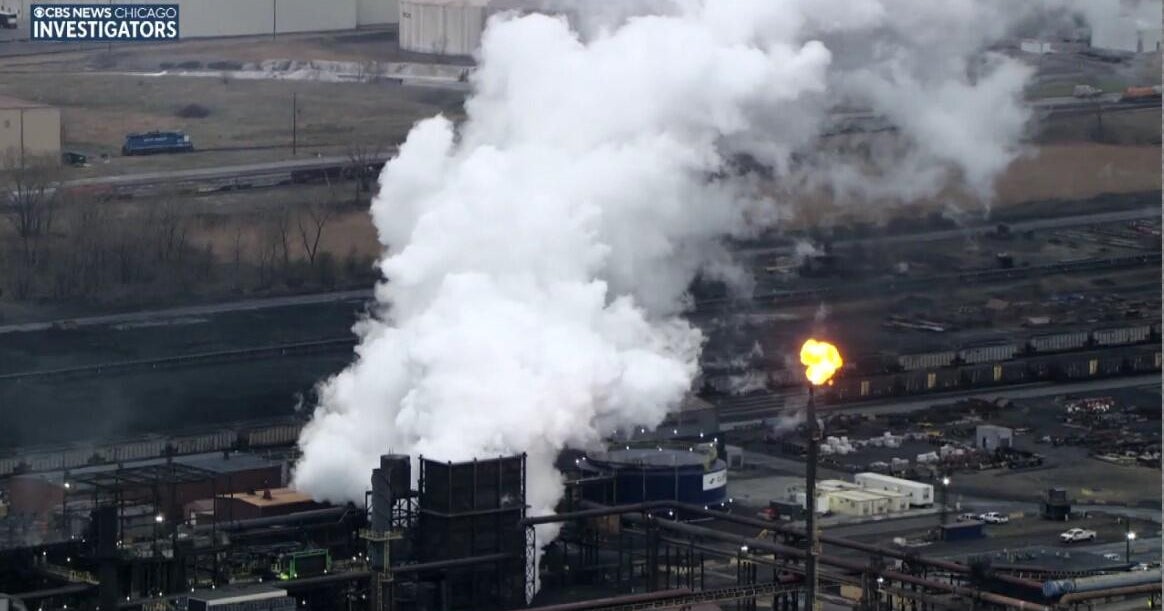EPA Reverses Decision On Mesabi Nugget Variance
ST. PAUL, Minn. (AP) -- The federal Environmental Protection Agency has agreed to reverse its approval for a variance that lets the Mesabi Nugget iron processing plant near Hoyt Lakes violate Minnesota water quality standards but said Tuesday that the state and company will get the chance to reapply.
In a motion filed in federal court Monday, the EPA told the court it intends to disapprove the variance, which it approved in 2012. The decision still requires court approval.
Two environmental groups and the Fond du Lac and Grand Portage Chippewa bands sued the EPA last year to block the variance, saying it improperly allowed the iron processing plant to exceed state standards for bicarbonates, conductivity, hardness and total dissolved solids. They said the discharges threaten wild rice and other aquatic organisms in the St. Louis River watershed, which flows into Lake Superior.
If the court approves, the EPA said in a statement Tuesday, the federal agency will send the Minnesota Pollution Control Agency a letter formally disapproving the variance.
"If MPCA can adequately address the issues raised in the disapproval letter, MPCA will be able to resubmit the variance for EPA review and approval," the EPA said.
The MPCA will wait to get that letter before it determines its next steps, said Shannon Lotthammer, director of the agency's environmental analysis division. She said she didn't know what issues the EPA might raise.
Mesabi Nugget's plant manager, Jeff Hansen, said the company was working on a statement.
The groups WaterLegacy and the Minnesota Center for Environmental Advocacy said the EPA's decision means Mesabi Nugget must comply with established standards.
"This is a very substantial victory," Paula Maccabee, an attorney for WaterLegacy, said. She said the EPA has recognized its approval of the variance was a mistake and that the state's water quality standards must be enforced.
Scott Strand, executive director of the Minnesota Center for Environmental Advocacy, said in a statement that the EPA's decision has implications for not just the state's iron mining industry but copper-nickel mining projects as well. Mesabi Nugget is located near the processing plant that PolyMet Mining Corp. plans to use for its proposed copper-nickel mine, which is going through the environmental review process.
Mesabi Nugget uses a new technology to convert iron ore concentrate into 97-percent pure iron nuggets that are used in electric arc mini-mills, in contrast with the less pure taconite pellets produced by most Minnesota mining operations that feed traditional blast furnaces. The MPCA approved the plant's water quality variance in October 2012, and the EPA signed off on it in December 2012.
The plant and the affected streams sit in an area where the Fond du Lac, Grand Portage and Bois Forte bands retain hunting, fishing and gathering rights under an 1854 treaty. The Fond du Lac and Grand Portage bands said in a joint statement that the variance allows sulfate discharges that are about 16 times higher than the state's limit for wild rice waters. However, the EPA noted that the company did not seek and the EPA did not grant a specific variance from the state's sulfate standard. Lotthammer said sulfates are only one component of the total dissolved solids covered by the variance, and the litigation did not address the sulfate standard.
"This case was about maintaining the wildlife habitat and wild rice waters where band members exercise their treaty rights, and about protecting the rights of all Minnesotans to have clean water," Fond du Lac Chairwoman Karen Diver said in the statement.
"We are not against mining, and support the jobs mining brings to the Iron Range — but industry has to comply with the Clean Water Act and acknowledge our treaty rights," Grand Portage Chairman Norman Deschampe added.
(© Copyright 2014 The Associated Press. All Rights Reserved. This material may not be published, broadcast, rewritten or redistributed.)







